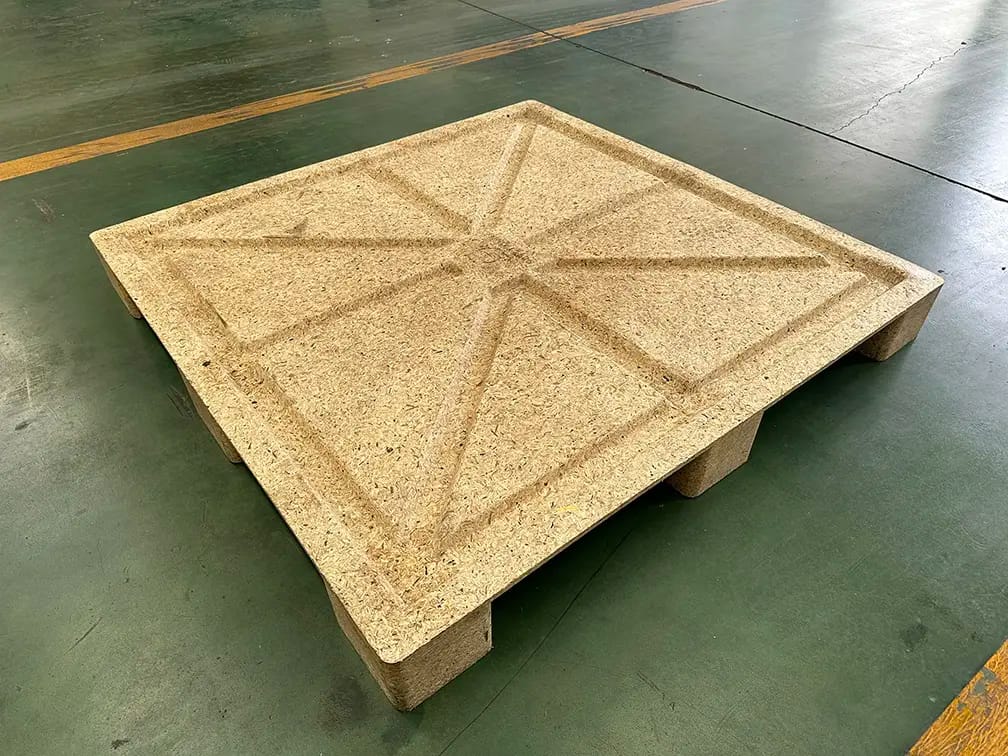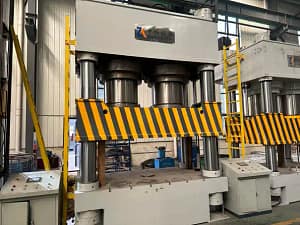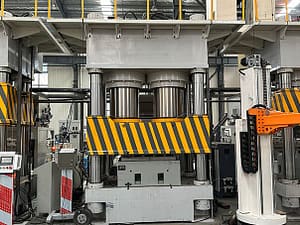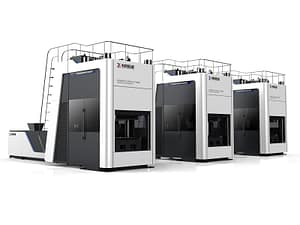The presswood pallet market in Indonesia has emerged as a dynamic segment within the logistics and packaging industry, driven by the country’s rapid industrialization, growing export activities, and increasing emphasis on sustainability. As businesses seek efficient, eco-friendly, and cost-effective solutions for transporting goods, pallets—particularly those produced by advanced technologies like the Presswood machine, presswood pallet machine, and pallet molding machine—are gaining traction. This article provides an in-depth analysis of the current state of the molded pallet market in Indonesia, examines the market dynamics of different pallet materials, and forecasts trends for the coming years, supported by reliable data.

Current State of the Presswood Pallet Market in Indonesia
Indonesia, as Southeast Asia’s largest economy, has a robust logistics sector fueled by its manufacturing, agriculture, and e-commerce growth. The demand for pallets, including molded pallets, has risen steadily due to the country’s strategic position as a trade hub. According to a report by DataHorizzon Research, the global Presswood pallets market is expected to witness exponential growth at a significant CAGR from 2024 to 2033, with Asia-Pacific—including Indonesia—playing a pivotal role due to its expanding industrial base.
In Indonesia, presswood pallets (also known as molded wood pallets) are manufactured using wood fibers, resin, and high-pressure molding techniques, often facilitated by a presswood pallet machine. These pallets are lightweight, pest-resistant, and compliant with international phytosanitary standards (ISPM 15), making them ideal for export-oriented industries like furniture, palm oil, and textiles. The market size for presswood pallets in Indonesia is estimated to account for a notable share of the broader pallet market, which was valued at USD 60.5 billion globally in 2022 and is projected to reach USD 88.4 billion by 2032, growing at a CAGR of 4.30% (Market Research Future, 2023).
Key Drivers
- Sustainability Push: Indonesia’s government and businesses are increasingly prioritizing eco-friendly solutions. Presswood pallets, made from recycled wood waste, align with this trend.
- E-commerce Boom: With online retail sales in Indonesia projected to reach USD 95 billion by 2025 (Statista, 2024), the need for durable and cost-effective packaging solutions like molded pallets is surging.
- Export Growth: Indonesia’s export value hit USD 292 billion in 2022 (Indonesia Central Statistics Agency), boosting demand for compliant pallets.
Market Analysis of Different Pallet Materials in Indonesia
The Indonesian pallet market features a variety of materials, including presswood (molded wood), plastic, and traditional wood. Each material has distinct advantages, challenges, and market positioning. Below is a comprehensive comparison across multiple dimensions:
1. Presswood Pallets (Molded Wood Pallets)
- Price: Moderately priced, typically ranging from USD 10–20 per unit, depending on size and load capacity. They are cheaper than plastic pallets but slightly more expensive than traditional wood pallets.
- Market Share: Estimated to hold approximately 15–20% of the Indonesian pallet market, with growth driven by sustainability and export compliance.
- Strengths:
- Lightweight (60% lighter than hardwood pallets), reducing shipping costs.
- Eco-friendly, made from waste wood via a pallet molding machine.
- Pest-free and ISPM 15-compliant without additional treatment.
- Weaknesses:
- Lower load capacity (up to 1,500–2,000 kg) compared to plastic or heavy-duty wooden pallets.
- Higher initial production costs due to reliance on advanced presswood machines.
- Applications: Widely used in food & beverage, pharmaceuticals, and export logistics.
2. Plastic Pallets
- Price: Higher cost, ranging from USD 25–50 per unit, due to raw material and manufacturing processes like plastic pallet molding machines.
- Market Share: Accounts for about 25–30% of the market, dominant in industries requiring hygiene and durability.
- Strengths:
- Exceptional durability and weather resistance.
- Reusable and recyclable, appealing to circular economy advocates.
- High load capacity (up to 2,500 kg or more).
- Weaknesses:
- Expensive upfront investment.
- Environmental concerns due to plastic production emissions, despite recyclability.
- Applications: Preferred in chemical, pharmaceutical, and cold chain logistics.
3. Traditional Wooden Pallets
- Price: Most affordable, ranging from USD 8–15 per unit, depending on wood type (e.g., pine or hardwood).
- Market Share: Still the largest segment, capturing 50–60% of the market due to low cost and widespread availability.
- Strengths:
- High load capacity (up to 3,000 kg for hardwood).
- Easily repairable and locally sourced.
- Weaknesses:
- Susceptible to pests, requiring heat treatment or fumigation for export.
- Heavier, increasing transportation costs.
- Less sustainable due to deforestation concerns.
- Applications: Common in construction, manufacturing, and domestic logistics.
Additional Factors
- Durability: Plastic pallets lead, followed by presswood, with traditional wood being the least durable over time.
- Customization: Presswood pallet machines allow for tailored sizes and designs, giving molded pallets an edge over rigid traditional wood options.
- Regulatory Compliance: Presswood and plastic pallets excel in meeting international standards, while traditional wood requires additional processing.
Competitive Landscape and Industry Players
Several companies are shaping Indonesia’s molded pallet market. Local manufacturers leverage the abundance of wood waste from the furniture and forestry industries, while international players introduce advanced presswood machines and pallet molding machines. For businesses seeking cutting-edge equipment to enter or expand in this market, PalletsBiz stands out as a pioneer. As one of China’s earliest manufacturers of presswood pallet production and R&D facilities, PalletsBiz offers state-of-the-art presswood pallet machines and a highly skilled research team. Their solutions enable efficient, sustainable pallet production, making them a top recommendation for Indonesian firms. Visit their website at www.palletsbiz.com for more details.
Future Trends in Indonesia’s Presswood Pallet Market (2025–2030)
Based on current market dynamics, several trends are likely to shape the presswood pallet market in Indonesia over the next five years:
1. Rising Adoption of Molded Pallets
- The shift towards sustainability will drive demand for molded pallets. By 2030, their market share could rise to 25–30%, fueled by investments in presswood machines and growing awareness of eco-friendly logistics.
2. Technological Advancements
- Innovations in pallet molding machines will reduce production costs and improve pallet strength. Double-station presswood machines, like those offered by PalletsBiz, will enhance efficiency, making molded pallets more competitive against plastic alternatives.
3. Competition from Plastic Pallets
- While plastic pallet molding machines will continue to cater to high-durability needs, their growth may slow due to environmental regulations. Presswood pallets could capture market share from plastic in cost-sensitive segments.
4. E-commerce and Lightweight Solutions
- With e-commerce logistics requiring lightweight yet sturdy packaging, presswood pallets will see increased adoption. Their nestable design (4:1 space-saving ratio) will appeal to warehouses aiming to optimize storage.
5. Government Support
- Indonesia’s push for sustainable manufacturing, backed by policies like the National Circular Economy Roadmap, will incentivize businesses to adopt presswood pallets over traditional wood, potentially offering subsidies for presswood machine investments.
Data-Driven Forecast
- The global molded wood pallets market is projected to grow at a CAGR of 5.6% from 2023 to 2033, reaching USD 4.66 billion (Future Market Insights, 2023). Indonesia, as part of the Asia-Pacific region, is expected to outpace this average, potentially achieving a CAGR of 6–7% due to its unique economic drivers.
Conclusion
The presswood pallet market in Indonesia is at a transformative stage, balancing cost, sustainability, and performance. While traditional wooden pallets dominate due to affordability, molded pallets produced by presswood pallet machines are carving a niche with their eco-friendly attributes and export readiness. Plastic pallets, though durable, face challenges from rising environmental scrutiny. Looking ahead, the next five years will likely see presswood pallets gaining ground, supported by technological advancements and e-commerce growth.
For businesses aiming to capitalize on this trend, investing in reliable equipment is key. PalletsBiz, with its advanced presswood machines and commitment to sustainability, offers an ideal partnership. Explore their innovative solutions at www.palletsbiz.com to stay ahead in Indonesia’s evolving pallet market.



